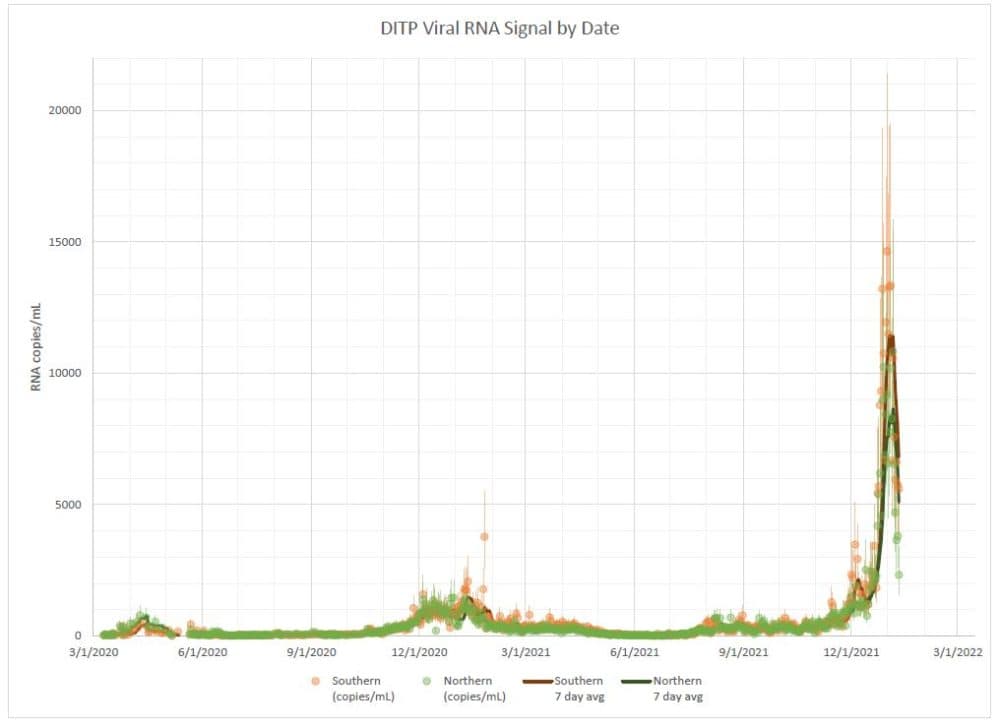Advertisement
Coronavirus Coverage
'Unambiguously good news': Sharp decline in COVID wastewater levels in Boston area

New data suggest omicron cases may have peaked in the Boston area. In December, the level of COVID found in the metro area’s sewage rose extremely rapidly. Now, those numbers show a sharp decline.
“When I refreshed the website and saw it, I literally punched the air and let out a hoot because it was something I've been hoping for,” said Bill Hanage, a professor of epidemiology and co-director of the Center for Communicable Disease Dynamics at Harvard’s T.H. Chan School of Public Health. “It’s unambiguously good news.”
The size of the decline, as well as the fact that it was consistent across both the northern and southern catchment areas, makes Hanage confident that the spike is over.
The Massachusetts Water Resources Authority (MWRA) collaborates with Biobot Analytics to measure the level of COVID found at its Deer Island Wastewater Treatment Plant. With testing shortages and large numbers of asymptomatic cases, experts have worried the state’s official case count is a severe undercount, and many have turned to wastewater measurements.
“It is an unbiased indicator of the number of people infected today,” said Scott Olesen, an epidemiologist at Biobot Analytics.
Hanage said the steep decline likely means major disruptions from illness and quarantines will subside. However, he warned, we are not out of the woods yet. The strained health care system will feel the repercussions of the omicron variant for the next month or so.
“We still have to be worried about people who are older because the virus has mostly been transmitting among young people — the 20- to 40-year-olds — and it's just getting into those older host networks,” Hanage said.
The omicron variant has followed a consistent pattern within limited geographic areas. In the UK, South Africa and now, Boston, there’s a steep increase in infections for three weeks and then it starts to collapse.
Hanage doesn’t know exactly why it collapses or what the future looks like but, he said, “I never bet against the virus.”
